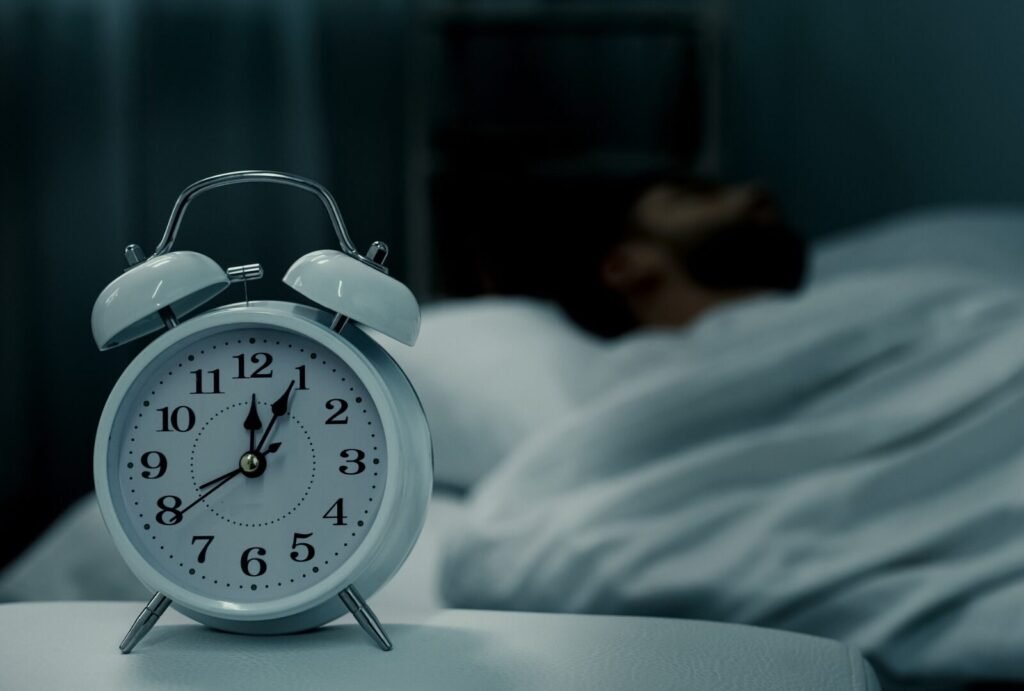Beyond the Night Terrors: Unveiling the Psychological and Physical Trigger
Your dreams are not always peaceful escapes; sometimes, they can turn into disturbing nightmares. REM, also called rapid eye movement sleep, is the phase when we dream. However, having nightmares can be distressing and can affect our mental health.
So, what causes nightmares?
You can have a nightmare due to various reasons such as drinking alcohol, taking drugs or medication. It interferes with the phase of dreaming, REM sleep. You just had a nightmare because your sleep cycle was disturbed or you didn’t get enough sleep.
Stress or posttraumatic stress disorder (PTSD) can also be leading factors that cause nightmares. All these ideas run through your mind and become scary and horrible dreams.
But once we understand completely why someone has had a nightmare, it can help us improve our quality of sleep.
"
In this article, you will understand what causes us to see nightmares in our sleep.
- Table of Content
- What leads to nightmares?
- Final Thoughts
What leads to nightmares?
1. Use of medicines, drugs and alcohol
Alcohol can interfere with your sleep cycle by processing in your body throughout the night especially during REM sleep. REM sleep consolidates memory, processes emotions and produces dreams. Also, when you are drunk, you may wake up several times in a night without knowing it.
Some medications like antidepressants, antipsychotics and blood pressure medications interact with various neurotransmitter levels in the brain. These medications can have unexpected effects on your quality of sleep by causing difficulties in falling asleep or staying asleep while interrupting nature’s schedule of events concerning sleeping including dreaming patterns (REM). Medication-induced disruption in sleep stages can result in nightmares as a side effect.
Marijuana, cocaine, and amphetamines are all psychoactive drugs that have a direct effect on how the brain works. The overall disruption of sleep patterns caused by these drugs, combined with their psychoactive effects on the brain, dramatically increases the likelihood of having nightmares.
2. Psychological disturbances
Anxiety disorders are characterised by excessive worry and intrusive thoughts, which can make it difficult to relax and sleep. Stress makes your body more alert. This “fight-flight” response can make it difficult to relax and enter a deep sleep.
Depression often disrupts sleep patterns, resulting in insomnia (difficulty falling asleep) or hypersomnia (excessive sleepiness). Both extremes can influence the quality of our dreams.
The hopelessness, worthlessness and sadness associated with depression can fill your dreams, leading to nightmares and depression.
3. Lack of sleep
Inadequate sleep or irregular sleep patterns can result in frequent nightmares. If the body does not have enough time to properly complete the sleep cycles it can cause disturbances including nightmares during the REM phase. REM sleep is important for cognitive processing and memory storage.
Sleep doesn’t relieve the anxiety and worry you carry all day. Lack of sleep can increase stress and anxiety in general and this can increase the chances of getting nightmares. Bad dreams can make you feel uncomfortable, further ruining your sleep.This disruption of sleep can contribute to insomnia, REM regression, and an increased risk of nightmares
4. Poor Sleep Environment
Our bodies naturally relax when we sleep. Extremely hot or cold weather disrupts this process, making it difficult to fall asleep properly. Sleeping in hot weather can cause sweating and nausea, leading to repeated awakenings and nightmares. Likewise, the cold environment can make it difficult to fall asleep and stay warm, disrupting sleep and causing nightmares. Inadequate ventilation in the room can cause difficulty in breathing, causing discomfort and disturbing normal sleep.
An uncomfortable mattress, an unstable pillow, or an old, worn-out bed can cause aches and pains throughout the night. This physical disorder prevents a person from going into deep sleep.Tossing and turning due to discomfort can further disrupt sleep and make it difficult to get a good night’s rest.
An unsupportive mattress or pillow can also cause misalignment of the spine, leading to pain and stiffness, disturbed sleep patterns and possible nightmares
5. Stress
Nightmares don’t always clearly indicate our stress. Our anxieties are represented in our dreams through symbolic language. For example, a nightmare of being chased by a monster is not really a monster. It can represent feeling overwhelmed by work deadlines, pressure to work, or constantly running out of time.
Anyone who is anxious about an upcoming exam dreams of forgetting everything in front of the class, only to relive the fear of public humiliation. The dream of any financially stressed person is to get lost in a maze with no way out, feeling lost and trapped in debt.
6. Past traumas
Exposure to a traumatic event leads to posttraumatic stress disorder (PTSD). One of the most common symptoms of PTSD is nightmares that explicitly or symbolically recreate the traumatic experience. These nightmares can be very disturbing and can seriously disrupt sleep. Your subconscious mind can transform your past traumas into nightmares and can disturb your sleep cycle.
Finally!
It is important to note that nightmares can sometimes be a symptom of a larger problem that requires professional help, especially if they are frequent, severe, or significantly interfere with your daily life. Seeking help from a health care provider or mental health professional can help address any causes of nightmares and explore appropriate treatment.
Subscribe to new post
The One Liner
Useful Links
Order Related Queries
Useful Links
Order Related Queries






